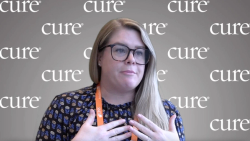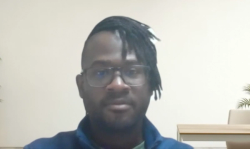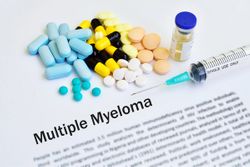- About
- Advertise / Support
- Contact
- CancerNetwork.com
- TargetedOnc.com
- OncLive.com
- OncNursingNews.com
- Terms & Conditions
- Privacy
- Do Not Sell My Information
© 2024 MJH Life Sciences™ and CURE - Oncology & Cancer News for Patients & Caregivers. All rights reserved.
FDA Approves Abecma for Pretreated R/R Multiple Myeloma

A nationally-published, award-winning journalist, Alex Biese joined the CURE team as an assistant managing editor in April 2023. Prior to that, Alex's work was published in outlets including the Chicago Sun-Times, MTV.com, USA TODAY and the Press of Atlantic City. Alex is a member of NLGJA: The Association of LGBTQ+ Journalists, and also performs at the Jersey Shore with the acoustic jam band Somewhat Relative.
The Food and Drug Administration approved Abecma for adults with relapsed or refractory multiple myeloma who have received two or more previous lines of therapy.
The Food and Drug Administration has approved the CAR-T cell therapy Abecma (idecabtagene vicleucel; ide-cel) for the treatment of adults with relapsed or refractory multiple myeloma who have received two or more previous lines of therapy, including an immunomodulatory agent, a proteasome inhibitor and an anti-CD38 monoclonal antibody, Bristol Myers Squibb and 2seventy bio Inc. have announced.
Abecma had previously been approved by the FDA for patients who received at least four prior lines of therapy.
The approval, based on findings from the phase 3 KarMMa-3 trial, makes Abecma earlier for patients who have relapsed or become refractory, the companies announced.
“Abecma has demonstrated a progression-free survival benefit three times that of standard regimens in relapsed or refractory multiple myeloma, and we are now bringing the promise of cell therapy to patients earlier in their treatment journey,” Bryan Campbell, senior vice president, head of commercial, cell therapy, Bristol Myers Squibb, stated in a news release. “This approval underpins our commitment to addressing the unmet needs of more patients living with multiple myeloma by improving upon the current treatment paradigm, and we remain steadfast in our pursuit of innovation and advancing cell therapy research to deliver potentially transformative therapies.”
“We are extremely pleased that Abecma will be available to many more patients in the U.S.,” stated Chip Baird, chief executive officer, 2seventy bio, in the news release. “This approval represents another important milestone for patients, for Abecma, and for 2seventy bio as we remain committed to increasing treatment options and working to improve outcomes for patients living with multiple myeloma.”
In the KarMMa-3 trial, at an approximate median duration of follow-up of 15.9 months for the primary analysis of progression-free survival (PFS; the time a patient lives without their disease spreading or worsening), patients treated with Abecma experienced a median PFS of 13.3 months, versus 4.4 months for patients who received standard regimens, marking a 51% reduction in the risk of disease progression or death. Abecma showed an overall response rate (the percentage of patients whose disease responded partially or completely to treatment) of 71%, with 39% experiencing a complete or stringent complete response, compared with a 42% response rate and 5% complete response in the control arm.
Patients treated with Abecma experienced a median duration of response of 14.8 months, and patients who achieved a complete response or better had a median duration of response of 20 months.
Under the study, 254 patients received Abecma and 132 were treated with standard regimens that included Darzalex (daratumumab), Pomalyst (pomalidomide) and dexamethasone (DPd); Darzalex, Velcade (bortezomib) and dexamethasone (DVd); Ninlaro (ixazomib), Revlimid (lenalidomide) and dexamethasone (IRd); Kyprolis (carfilzomib) and dexamethasone (Kd) or Emopliciti (elotuzumab), Pomalyst and dexamethasone (EPd).
According to the news release, among the 349 patients treated with Abecma in the KarMMa and KarMMa-3 studies, any-grade cytokine release syndrome (CRS) occurred in 89% of patients, with grade 3 or higher CRS in 7% and three deaths, with a median time to CRS onset of one day and a median duration of five days.
Forty percent of patients experienced any grade neurotoxicity, with 4% experiencing grade 3 neurotoxicity two cases of grade 4 neurotoxicity and one death, with a median time to neurotoxicity onset of two days and a median duration of toxicity of eight days.
For more news on cancer updates, research and education, don’t forget to subscribe to CURE®’s newsletters here.
Related Content:



